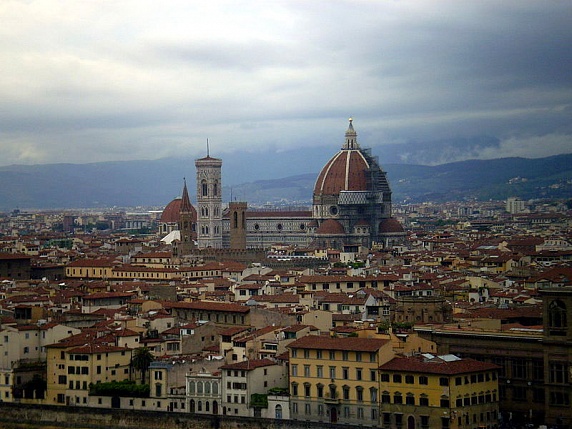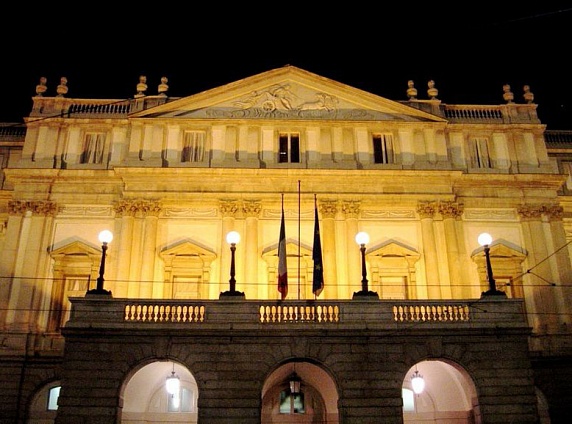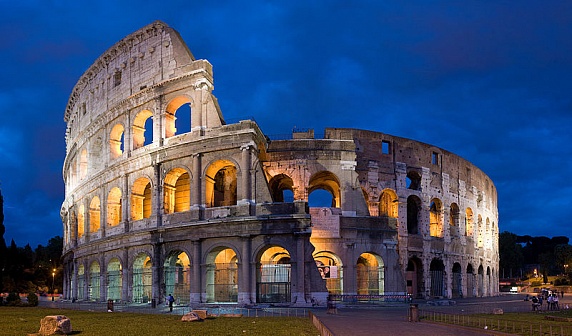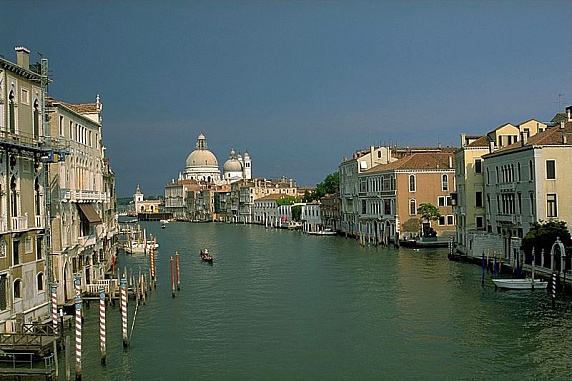 Italienische Republik
Italienische Republik
Foreign Minister Sergey Lavrov’s interview with Russian and foreign media via video-conference on urgent international issues, Moscow, April 14, 2020
Like most of our colleagues in other specialties and professions, we are now working remotely. This is why we have temporarily suspended our traditional forms of diplomatic activity like personal visits and talks and news conferences and comments that follow them. We receive questions about Russia’s foreign policy activity in these conditions and so we decided to respond to your request and hold this interview today.
Question: Are you considering changing the travel rules for Russians going abroad during the coronavirus pandemic or after the borders are opened? What would this be? Exit visas, mandatory negative coronavirus testing or something else? Are you discussing this issue now with our partners?
Sergey Lavrov: For now, this issue is not being discussed by anyone. I don’t think any of our compatriots want to go abroad now. In principle, bans are not possible because freedom of movement is fixed in our Constitution. I think the main thing now is to reduce the number of infected people and fatalities as much as possible. The measures that are being taken by the emergency response centre of the Government of the Russian Federation are well known. We are strictly guided by these decisions.
I would like to talk again about exiting the country. Obviously, nobody is going to introduce exit visas. I cannot even imagine a discussion on this issue on a practical plane. I would not worry about those who would like to use this constitutional right when physical capabilities, such as air service and other travel modes are restored.
Question: Of course, my question is also about the coronavirus. Washington continues to criticise the World Health Organisation (WHO). What does Russia think about this behaviour at a time when the whole world, almost every country without exception, is in the middle of fighting the coronavirus pandemic in cooperation with the WHO? Is this criticism useful and constructive or maybe it is counterproductive now?
Sergey Lavrov: Basically, what the WHO has done and when is well known. The statistics are available. I believe that anyone who studies the chronology of its actions, statements and specific decisions will be convinced that the WHO was efficient. Moreover, the fact that the WHO has played and continues to play a major coordinating role in countering the pandemic is reflected in the recently adopted consensus resolution of the UN General Assembly and the final declaration of the G20 extraordinary summit. In both cases, the United States supported the consensus documents. We can only assume that this is their official position.
I would certainly warn everyone against any attempt to politicise the coronavirus issue. Meanwhile, such attempts are not limited to the role of the WHO. Accusations are also being leveled against various countries. I would concentrate today on specific steps to curb the pandemic and its spread and reduce the damage to a minimum, primarily the health and lives of people. Later, we will be able to analyse the lessons of the “campaign,” the mistakes and the role of multilateral institutions.
One more statement about the WHO: when talking about its actions, let’s not forget that the United States is its biggest financial contributor, and as such always has priority representation in the structures and secretariats of international organisations. Most of the WHO’s key posts are held by Americans. They are certainly specialists and make well-considered professional decisions.
Question: We have also noted that the spread of the coronavirus has impacted international life, both in the economy and politics. What mechanism, in your opinion, should now be designed to help the leading countries combat the pandemic jointly? Is there a threat to peace and stability in the world at large if the pandemic is not suppressed soon?
Sergey Lavrov: Of course, the pandemic has created very serious problems, the most important of which is saving people’s lives, ensuring their security, biomedical safety and the preservation of the human environment, which should be comfortable and pose no threats to life and health.
The second challenge, which everybody is talking about, is the economy: the economy of certain countries, the global economy, and the way the coronavirus pandemic has affected trade and investment, as well as currency exchange rates. You can see what is happening to the demand for various products that used to be very popular, including energy carriers, of course. We have to find solutions to all these problems at a gallop, so to say, at the level of individual countries and the organisations of which these countries are members. This is, undoubtedly, the second critical challenge facing humanity.
The third challenge: the current situation is a test not only for states, but also for integration and other associations that include such states. I think that after we overcome this global threat using joint efforts and work out an antidote in case such developments recur, we will have to rethink a lot of things concerning the operation of multilateral organisations. Perhaps we will have a better understanding, for example, of what Europeans think of the European Union and the North Atlantic Alliance. We will have a better understanding of how we should approach cooperation in the post-Soviet space, the activities of the Eurasian Economic Union (EAEU), the Shanghai Cooperation Organisation (SCO) and other associations. Discussions in such formats as the G20 and BRICS will be very promising. By the way, let me remind you that BRICS decided to draw up a cooperation programme on vaccine development and application as early as in 2018. Our Chinese partners and we think that such preparations are in great demand.
Speaking of Russian-Chinese relations in the context of this pandemic, we have been working together since the very outset of the crisis. In early February we evacuated our citizens from Wuhan and delivered humanitarian aid there. Now we are accepting assistance from our Chinese friends, who have passed the peak of the pandemic, and the country and the people have returned to normal life. I firmly believe that mutual assistance is the key principle that all countries should be guided by at this difficult time.
Question: Can the coronavirus situation affect the plans to hold a summit of permanent members of the UN Security Council, which is tentatively scheduled for this September in New York? Can this summit be held earlier because of the need to work out a joint response to the corona crisis? Are you discussing the possibility of holding this meeting via videoconference?
Sergey Lavrov: I can say that no specific agreements on the summit timing have been reached. This concerns the in-person summit, physically uniting the leaders of the five permanent members of the UN Security Council, and all our partners in the group of five permanent members of the UN Security Council agree on this. There is an agreement of principle for this event to focus on a large-scale, major analysis of global developments in all areas that one way or another bear on people’s safety and strategic stability. Its agenda is being discussed in the regular course of business at the foreign ministries level.
I know that September was named as its time but no decisions have been taken so far. This time should be agreed by a consensus of all heads of state.
As for the possibility of a videoconference, we do not rule it out, though not instead of the core summit, but only if the heads of state deem it necessary, first of all, to consult each other at this stage primarily regarding the immediate tasks on additional steps to combat the coronavirus.
Question: Will the Council of Europe foreign ministers’ meeting be held in Strasbourg in May, as it was planned? For example, you German counterpart Heiko Maas recently said that he wanted very much to meet with you in person as soon as possible and is even ready to wear a mask during the talks. How realistic are these plans for May?
Sergey Lavrov: Since Heiko Maas said this in public and did not tell me anything directly I also want to convey my invitation to him through you to come here any time if he finds a way to reach Moscow. As soon as he lands here we will ensure complete safety for him and his delegation as far as their life and health are concerned. Let him come. Heiko, if you can hear me, I am absolutely serious.
As for the session of the Committee of Ministers of the Council of Europe (CMCE), which was to be held in May to conclude the Georgian chairmanship, indeed the Georgians themselves asked to hold it in Strasbourg because of their domestic problems, which I would rather not comment on. However, in view of the coronavirus, the Council of Europe suggested holding the CMCE session in November in Greece, which is to take over the Council of Europe chairmanship from Georgia.
Question: Could it so happen that once the epidemic is over video conferencing will become more popular in diplomatic affairs compared to traditional talks?
Sergey Lavrov: I think that some aspects of diplomatic affairs will shift toward video conferencing. Even before the pandemic this method had been used, but it will never replace face-to-face interaction. As I have mentioned on multiple occasions, there are things that you simply cannot discuss in any way other than eye-to-eye. Modern means of communication will never replace personal contacts, which does not mean that we do not have to master these tools. After all, in some instances paper or electronic means of communication cannot be trusted. Instead, what is needed is trust-based and confidential dialogue.
Question: During the weekend, Deputy Foreign Minister Sergey Ryabkov said that Russia and the United States had agreed to set up a working group dealing with outer space. Why has this become so important now, during the pandemic? What specifically does Russia want to achieve through this working group?
Sergey Lavrov: It is not that we want to achieve anything. The decision to establish the working group resulted from our long-standing dialogue with the United States on what mechanisms Moscow and Washington believe to be adequate for working on global matters, and what questions can benefit the most from Russia and the US working together. Of course, space and all space-related matters are one such sphere where we are the two leading nations, as confirmed recently during the conversation between President of Russia Vladimir Putin and the Russian and American crew members of the International Space Station, as well as during telephone conversations between the Russian and US presidents. In particular, the two leaders had a telephone conversation on Cosmonautics Day, Aril 12, 2020. Overall, Russia and the United States intend to resume substantive efforts on strategic stability.
A few weeks ago the US Secretary of State called me on the phone, and I would like to have another telephone conversation with him in the near future. Mike Pompeo touched upon resuming talks on arms control, and strategic stability in general. We welcome this kind of interest on behalf of our US partners, since we have been urging them for quite a while now to be more proactive in dealing with these matters.
Deputy foreign ministers of our two countries held a round of consultations, with Deputy Foreign Minister Sergey Ryabkov representing Russia. That being said, we want our discussions to be more specific, including on the New START and its future. We are also open to talking about the development of new technology, including hypersonic weapons. Make no mistake, however, that all aspects and factors affecting strategic stability have to be taken into consideration during these discussions. This applies to the plans to militarise outer space, strategic conventional weapons, the future of the Comprehensive Nuclear-Test-Ban Treaty (CTBT) and many other issues. We want to discuss all these matters, including those related to outer space.
Regarding space matters, in our contacts with our US colleagues we are ready to go beyond the long-standing Russia-China initiative to prevent the deployment of weapons in outer space. In fact, the Americans do not want to be alone when they give the green light to this initiative. However, following up on these discussions we are ready to talk about ways to cooperate in the peaceful use of outer space. We took note of the memorandum signed by US President Donald Trump on the exploitation of off-Earth resources, including on the Moon. He emphasised that the approach adopted by the United States to this matter was based on the provisions of the 1967 Treaty on Principles Governing the Activities of States in the Exploration and Use of Outer Space, including the Moon and Other Celestial Bodies. Russia is a party to this treaty, just like the United States. In addition to this, just like the United States, Russia is not a party to another instrument, the 1979 Agreement Governing the Activities of States on the Moon and Other Celestial Bodies. The number of its signatories is in the lower double digits, and not a single major space power participates in this treaty. However, both Russia and the United States are committed to the principles set forth in the 1967 Treaty. Consequently, in the light of the initiatives proposed by Donald Trump (in his memorandum, he stressed the need to ensure that plans to explore and use resources, including on the Moon, must be supported internationally as per the 1967 Treaty) we believe this to be a proper approach and are ready to work together on finding mutually acceptable solutions.
Question: In early April, the Prague authorities demolished the monument to Marshal of the Soviet Union Ivan Konev, whose troops participated in liberating the Czech capital, among other cities. Russia immediately said it would take the monument back. As far as we know, the Czech Defence Ministry has refused. What will Russia do next? Does it plan to push for the return of the monument?
Sergey Lavrov: Of course, this Prague municipality’s behaviour is nothing short of being outrageous and cynical. It is at odds with the Treaty of Friendship and Cooperation, which we signed with the Czech Republic in 1993, and which contains obligations to preserve war monuments and memorial sites, access to them and obligations to tend to them. The Czech authorities claiming that this Treaty was not thus violated are disingenuous.
What happened can be described with different degrees of negativity. Notably, President of the Czech Republic Milos Zeman said it was a stupid and ludicrous thing to do. Frankly, there’s nothing ludicrous about it. But the fact is that the agreements that have been underlying our relations for over 30 years were thereby undermined.
We are being told that this monument was municipal property. But we know for sure that this is not the case, because before the demolition it was on the republican list of memorial sites. We believe that this issue can only be resolved in accordance with the above 1993 Treaty. By the way, public figures in the Czech Republic who care about this have already expressed their disagreement and indignation. Public associations and non-government organisations in the Czech Republic filed a lawsuit with the local court against the Prague-6 municipality. Many non-government organisations are sending materials to the Embassy that emphasise solidarity with our position on the unacceptability of this approach to the outcome of WWII.
An interesting detail transpired. As you may be aware, this decision was made by the Prague-6 municipality headed by Ondrej Kolar. His father worked at the Czech Foreign Ministry, he was an Ambassador to the United States and Russia, and now serves as an adviser to a US consulting company, which, please note, drafted a report for the Czech municipal officials, justifying the demolition of the monument.
We will push for our Czech colleagues to honour their commitments under the 1993 Treaty. We hope they are aware of the risks involved in further aggravating this situation.
Question: At a time when the UN, the WHO and leading world capitals are calling for the consolidation of efforts in the face of a common threat, certain forces seem to be looking for an opportune moment to strike. This is the case with the demolition of the monument to Marshal Konev and the attempts to foment a conflict in connection with Russia helping certain European countries. What are these forces? Who stands behind them? What are their goals?
Sergey Lavrov: These are Russophobic reflexes similar to the reflexes discovered by our great scientist Ivan Pavlov. These reflexes manifested themselves before the pandemic, during it and, unfortunately, will do so after it ends.
There are politicians who operate exclusively on the Russophobic field, because they are unable to do much else. We know from practice that Russophobia gives them the chance to live a comfortable life and receive support from some capitals. I don’t think we should name names. This is sad.
In answer to one of the previous questions, I said we will need to reconsider the role and capabilities of countries in repelling common global threats, and the role, abilities and sustainability of multilateral organisations that these states are part of. This is true of all the associations in Eurasia, the Euro-Atlantic and other regions of the world. We will need to decide whether we want to engage in moralising or act morally. This is one of the key decisions to be made. I think there are good prospects for the concepts focusing on unity of humankind.
Our Chinese friends came up with a concept of a community based on the common destiny of humankind which has come under criticism. Some suspect that nice words are just a front for the real hidden interests. That may well be the case. However, this proposal was put forward for general discussion. This is a concept that is aimed at combining our efforts. When the concepts of containing Russia, China, or other countries are put forward, they represent a slightly different, negative philosophy which stems from negativity, emphasising confrontation and fomenting differences. I think that the people who rule this field will become less popular and relevant after the coronavirus pandemic comes to an end.
Question: About ten days ago Russia delivered a plane-load of supplies to the United States to help fight the coronavirus. Are there any further plans in Moscow to help its US partners?
You mentioned Russia’s intention to expand dialogue with the Americans, including on strategic weapons and outer space. But for that you will need to have contacts. Have the contacts at the level of deputy foreign ministers continued remotely?
Sergey Lavrov: The delivery of medical equipment, supplies and personal protective equipment to the United States resulted from a direct agreement between the presidents of Russia and the United States. Donald Trump said that he was interested in receiving these supplies, and Russia sent them. You are y aware that the relevant business structures in Russia and the United States paid for the deliveries. We will definitely look into any further requests from the United States for assistance in delivering devices or protective equipment, as was mentioned during the latest telephone conversation between Vladimir Putin and Donald Trump two days ago. The US President also said that if Russia needs anything, once the production of the devices in question is up and running in the US, they can be delivered to Russia. I believe that this is what partners do, and these efforts deserve our full support.
As for the talks, we are now all working remotely, as I have already mentioned. There are things, including in all aspects of strategic stability, that can be discussed during video conferences or teleconferences. However, it would be advisable to postpone talks on some subjects until face-to-face diplomatic contacts can be resumed. This is the premise we proceed from.
Question: In your opinion, which of the US and European sanctions should be the first to be lifted? How could it be related to the coronavirus pandemic?
Sergey Lavrov: There could be a direct link between sanctions and the pandemic, and UN Secretary General Antonio Guterres was very clear when he talked about it. The same initiative came from UN High Commissioner for Human Rights Michelle Bachelet. In the context of mobilising efforts to fight the coronavirus, among other things, she called for rejecting unilateral sanctions hindering supplies of medical products and other essential products people need in order to follow the advice they get from their doctors. Unilateral sanctions are illegitimate per se, and sanctions bypassing the United Nations and undermining the pandemic response are totally immoral and inhuman.
In one instance, Chinese businessman and Alibaba Group founder Jack Ma sent help to Latin American countries, and it has been delivered. However, the United States stopped the shipment to Cuba and refused to allow it to reach Havana. By the same token, by dominating the market for these kinds of equipment and relying on the US dollar’s role in international settlements, the Americans have been able to prevent the Cubans from buying medical equipment. At the same time, it is highly regrettable and unworthy of a great nation that the US unleashed a smear campaign against Cuban doctors working in dozens of countries around the world and helping deliver on the most challenging healthcare tasks. They have been doing this for many years, working in Latin America and other regions of the world, long before the pandemic. In today’s environment Cubans have demonstrated the best in their national character, working to overcome great challenges in almost 60 countries, including in Europe and particularly in Italy. This nation deserves the highest respect for its dignified stance.
It is essential that an international instrument is drafted stating that unilateral sanctions, especially those that touch upon the humanitarian interests of ordinary people, are unacceptable. The UN General Assembly adopted the first resolution on fighting the coronavirus, and I think that another one will follow. The Group of 77 and China released a joint statement to this effect as an official UN document, and Russia landed this initiative its full support. This statement clearly says that unilateral sanctions are unacceptable, especially when the entire humankind is facing this threat.
We are also discussing the UN Security Council’s response to the developments related to the coronavirus. I strongly believe that in all its resolutions regarding the coronavirus, the Security Council should not fail to raise the subject of unilateral illegitimate sanctions imposed bypassing the UN’s main body. For many years now, Russia has been promoting together with a number of other countries the concept of a humanitarian threshold beyond which sanctions should not apply. When our Western colleagues push for sanctions during talks within the UN Security Council, and when they impose unilateral restrictions, they claim that they are targeting regimes rather than people, in order to force regimes to change their position. This is not the case. Just look at the outcome of the sanctions in Venezuela, Iran, DPRK, Syria, Cuba and other countries. They have made the lives of ordinary people worse. For this reason, illegitimate sanctions and the fact that neglecting humanitarian criteria is unacceptable will remain a topical issue, especially once we overcome this crisis.
Question: What do you think about the collection of signatures by representatives of the progressive forces in such countries as Great Britain and France as well as the efforts of some countries to lift the US blockade of Cuba, a policy that becomes absolutely cynical and inhumane when the entire world is fighting against the coronavirus pandemic?
Sergey Lavrov: The policy of blockading Cuba that the United States has been conducting for decades is supported by next to nobody. The UN General Assembly adopts resolutions annually on the unacceptability of that blockade and demands an immediate end to it. The latest resolution adopted in November 2019 gained a record number of votes – 187. Only three countries voted against: the United States, Israel and, unfortunately, Brazil. Two countries abstained: Columbia and Ukraine, which is also regrettable. An overwhelming majority of votes urging a stop to this illegal practice is a very powerful signal.
Sad to say, such signals have yet to produce any visible result in Washington, but in our contacts with US colleagues we point out that such an approach is counterproductive. The people of Cuba are interested in good relations with all countries, including the United States. We come to this conclusion every time we communicate with our Cuban friends. Of course, this is only possible on the basis of respect for one another and for the key principles of the UN Charter, that is for sovereignty and the right of peoples to determine their own destiny.
Question: Earlier, you warned against politicising the coronavirus pandemic. However, this is exactly what’s happening, and Russia is being accused of politicising the pandemic. EU High Representative for Foreign Affairs and Security Policy Josep Borrell said in an interview that Russia and China are providing aid to countries, such as Italy, in order to promote their geopolitical role. What can you say about this? How is Russia's foreign policy really changing amid the coronavirus pandemic? How might global geopolitics be affected by this pandemic?
Sergey Lavrov: With regard to the first part of your question, there are a number of proverbs on this account, such as “people tend to make conclusions about things based on how depraved their mind is” or, if you want, on how well they were brought up; or “everyone talks about their own woes." I’m saying this about the people who use purely humanitarian matters to promote geopolitical confrontation. It is sad to see Mr Borrell say what you quoted. It is sad that there are people who are trying to make a mountain out of a molehill and to portray the developments in Italy almost as a military invasion of NATO and the European Union.
Unfortunately, such material gets published in some Italian media outlets as well. More recently, the La Stampa newspaper carried an article which, without absolutely any grounds, tried to belittle and discredit the importance of Russia’s aid to Italy. Let me remind those who resort to such allegations, including my good friend Josep Borrell, of a very simple thing. Russia provided aid to Italy at the explicit request by the Prime Minister of that country, Giuseppe Conte. I think that says it all.
The fact that our Embassy in Rome receives dozens and hundreds of calls from ordinary Italians with words of appreciation is the best answer to the insinuations that are being used to belittle the significance of what is happening and give it some kind of a geopolitical hue.
You mentioned that such claims are being advanced with regard to China as well. Yes, we can see and hear that. This is also sad, because our Chinese friends have overcome the peak of the epidemic in their country, and now they are getting their economy back on track, and are not shutting themselves for the outside world. They are using every avenue to help other countries and to share the expertise that they have gained in fighting this scourge in China. When we hear the argument that China “will have to pay everyone for spreading this infection” and “allegedly someone failed to inform someone in good time,” it is beyond the pale. I heard someone in London throw some numbers in the air and came up with 3.7 trillion dollars or euros that China allegedly owes to the EU for damages caused by the pandemic. Some are saying China’s foreign-based property should be arrested if China fails to pay. There are officials who are saying this seriously and in public too. I think this is absolutely unacceptable. One should not hold other people to his or her own standards, as we are hearing this kind of reasoning primarily from our Western colleagues.
Speaking of shining examples of glory, 550 troops on USS Theodore Roosevelt have been diagnosed with the coronavirus. This is a quarter, perhaps, even a third of the crew. Reportedly, the coronavirus is on the rampage on other US aircraft carriers as well. According to the US press, the situation is far from favourable at the US military bases around the world, of which there are about 800, and which are located along Russian and Chinese borders. What do we do about that?
I believe, it is critically important not to point a finger at anyone, but to come to grips with the fact that this is our common misfortune, and we can deal with it only if we join our efforts, rather than try to antagonise a particular country.
Question: I have a question about the working conditions at the Russian Foreign Ministry under the circumstances. The US State Department recently said that over 300 American diplomats have been infected with the coronavirus and four have died. What about the Russian Foreign Ministry?
Sergey Lavrov: Immediately after the emergency response centre made the corresponding decisions, we introduced precautionary measures at our Ministry and foreign missions. Approximately half of our employees from the central office and territorial offices are now working remotely. Only the core staff continues to come to work in the building. We observe social distancing and the necessary sanitary measures like everybody else should be doing.
With regard to our foreign missions, we canceled vacations and business trips. Our colleagues are working at the embassies and consulates general in full compliance with the sanitary authorities’ requirements. This implies, of course, some elements of quarantine. In particular, the schools at our foreign missions are now providing education remotely. This does not always work out well, and there are occasional technical difficulties, but we just have to do so under the circumstances. All our employees working onsite are checked daily. So far, so good, and I hope that if we continue to comply with the requirements issued by Rospotrebnadzor and the Healthcare Ministry we will emerge from the pandemic unscathed.
Question: My question is about the future. Throughout the 75 years since the end of the last world war that shaped the current world order, countries, including Russia, have been seeking to stem the outbreak of another massive war. Unfortunately, it has broken out recently. This is a war for life, and it has engulfed the entire world, as high-flown as this may sound. The pandemic will end sooner or later, but the world will never be the same. Today, every country literally stands its own ground, despite the fact that Russia has been helping Italy, the United States and Serbia, as we have already mentioned. Russia in turn has been receiving aid from China. However, there is a lack of global unity and joint efforts to fight the pandemic. In addition, the existing alliances have proven ineffective in these conditions. In your opinion, how will all this affect the future world order? What will it look like after the pandemic?
Sergey Lavrov: In my response to one of the first questions I said that apart from fighting the pandemic and resolving economic problems at the national and global levels the third greatest challenge is to understand what lies ahead for multilateral institutions, what role they will play in the future and whether they will remain relevant. The outcome of the fight against the coronavirus will show which countries and multilateral structures have withstood the test of this horrible threat, this crisis. I understand your concern that the egoistic aspirations we are currently witnessing in the behaviour of some countries could prevail, leading to future attempts to self-insulate from the outside world. We are already witnessing anxious debates about Schengen Area countries on their shared future and neighbourly relations. In the end, I think that a collective approach will prevail. It may take some time though. It will require meetings and persuasion. However, this is the only possible way forward.
At this point in time, we must not lose hope and must do everything to make sure that this crisis inoculates nations against egoism, messianism and the temptation to pursue their interests to the detriment of others. This will not happen overnight. There is a growing body of evidence showing how difficult it is to fight these kind of threats alone. We also need to rely on persuasion. Russia proposes holding a highest-level meeting of the five UN Security Council permanent members, and their leaders will definitely ponder the future operation and role of multilateral institutions as part of their discussion on international stability and security.
Question: I have a question on humanitarian assistance to other countries. What has been the response? What have you heard? Can we expect European countries to adopt a more favourable position towards Moscow leading to the possible lifting of sanctions?
Sergey Lavrov: As we have said on a number of occasions, we will not even mention the topic of sanctions. If the European Union understands that this method no longer serves its purpose and moves away from the decisions adopted in 2014, we will definitely reciprocate. But we will not ask for it. Furthermore, I have already said many times that while our partners let us down and waived their obligations on a number of matters, we opted for a path of promoting self-reliance regardless of any shifts in the mood of our Western colleagues. This will not mean isolation, absolutely not. We have always been open to full, equitable and mutually beneficial cooperation. However, considering how the West acted after 2014 it is our duty to shield ourselves from similar excesses on behalf of our Western colleagues.
Let me remind you that regarding what happened in Ukraine in 2014 the West is to blame, since it was France, Germany, Poland and the United States who lobbied for the deal signed between then-president of Ukraine Viktor Yanukovich and the opposition, as witnessed by Paris, Berlin and Warsaw and with their written approval. And when the deal was trampled upon the very next morning, all our Western colleagues proclaimed without hesitation that “democracy prevailed.” We can now see what this democracy looks like: torch processions carrying flags of SS divisions and ultra-extremist organisations that are banned, even in the West.
I have commented on this subject on multiple occasions. We reject all sanctions imposed bypassing the UN Charter, but this is not the time for us to prioritise the lifting of sanctions in our relations with the European Union. We will show patience and focus on acting constructively within our country and in our relations with those who are ready to move forward without any reservations. By the way, there are quite a few countries of this kind in the European Union too. I hope that we will all draw the appropriate conclusions from this crisis.








